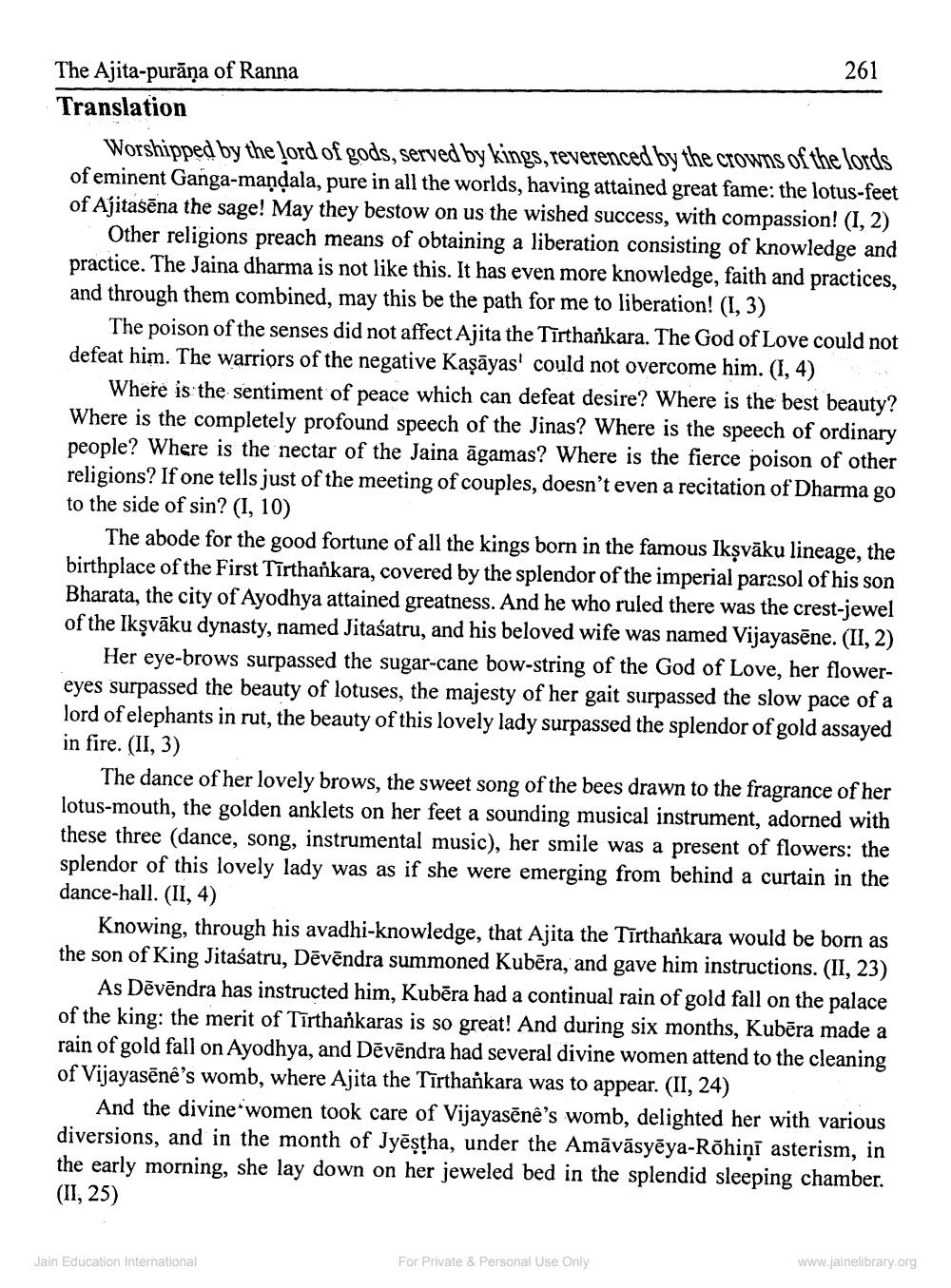________________
261 The Ajita-purāna of Ranna Translation
Worshipped by the Lord of gods, served by kings, reverenced by the crowns of the lords of eminent Ganga-mandala, pure in all the worlds, having attained great fame: the lotus-feet of Ajitaśēna the sage! May they bestow on us the wished success, with compassion! (1, 2)
Other religions preach means of obtaining a liberation consisting of knowledge and practice. The Jaina dharma is not like this. It has even more knowledge, faith and practices, and through them combined, may this be the path for me to liberation! (1, 3)
The poison of the senses did not affect Ajita the Tīrthankara. The God of Love could not defeat him. The warriors of the negative Kaşāyas' could not overcome him. (I, 4)
Where is the sentiment of peace which can defeat desire? Where is the best beauty? Where is the completely profound speech of the Jinas? Where is the speech of ordinary people? Where is the nectar of the Jaina āgamas? Where is the fierce poison of other religions? If one tells just of the meeting of couples, doesn't even a recitation of Dharma go to the side of sin? (I, 10)
The abode for the good fortune of all the kings born in the famous Ikşvāku lineage, the birthplace of the First Tīrthankara, covered by the splendor of the imperial parasol of his son Bharata, the city of Ayodhya attained greatness. And he who ruled there was the crest-jewel of the Ikşvāku dynasty, named Jitaśatru, and his beloved wife was named Vijayasēne. (II, 2)
Her eye-brows surpassed the sugar-cane bow-string of the God of Love, her flowereyes surpassed the beauty of lotuses, the majesty of her gait surpassed the slow pace of a lord of elephants in rut, the beauty of this lovely lady surpassed the splendor of gold assayed in fire. (II, 3)
The dance of her lovely brows, the sweet song of the bees drawn to the fragrance of her lotus-mouth, the golden anklets on her feet a sounding musical instrument, adorned with these three (dance, song, instrumental music), her smile was a present of flowers: the splendor of this lovely lady was as if she were emerging from behind a curtain in the dance-hall. (II, 4)
Knowing, through his avadhi-knowledge, that Ajita the Tīrthankara would be born as the son of King Jitasatru, Dēvēndra summoned Kubēra, and gave him instructions. (II, 23)
As Dēvēndra has instructed him, Kubēra had a continual rain of gold fall on the palace of the king: the merit of Tīrthankaras is so great! And during six months, Kubēra made a rain of gold fall on Ayodhya, and Dēvēndra had several divine women attend to the cleaning of Vijayasēne's womb, where Ajita the Tīrthankara was to appear. (II, 24)
And the divine women took care of Vijayasēne's womb, delighted her with various diversions, and in the month of Jyēstha, under the AmāvāsyĒya-Rõhini asterism, in the early morning, she lay down on her jeweled bed in the splendid sleeping chamber. (II, 25)
www.jainelibrary.org
Jain Education International
For Private & Personal Use Only




